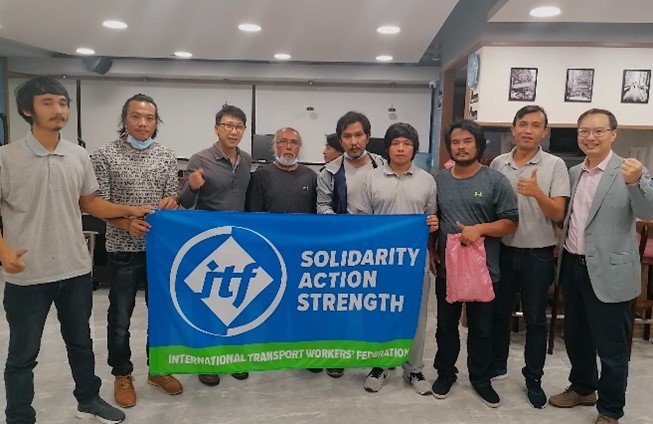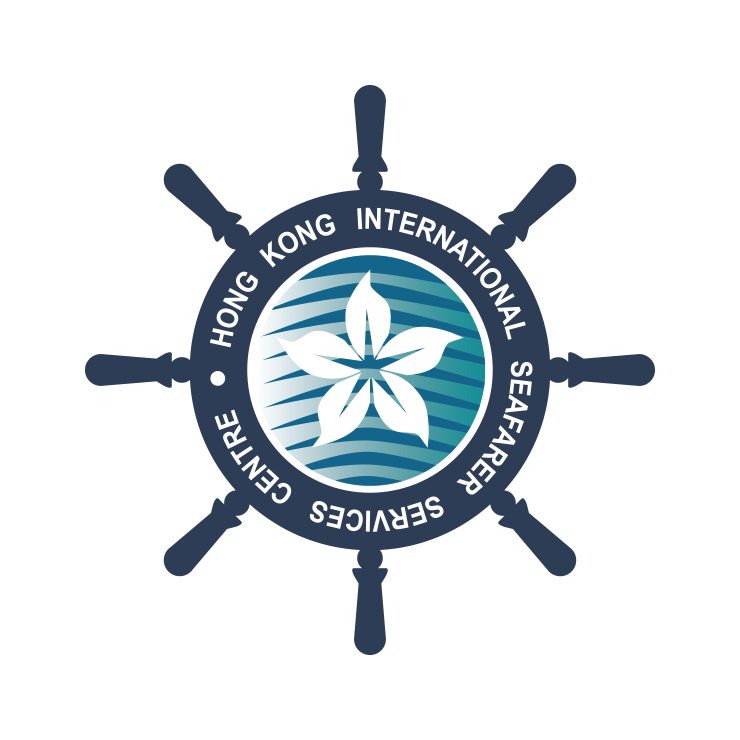无惧疫情限制 ITF检查员为海员追讨欠薪达 3760 万美元
ITF inspectors recover USD$37.6m in unpaid wages for seafarers, despite Covid restrictions
国际运输工人联盟(ITF) 公布,去年(2021年)工会检查员为海员成功追讨逾 3700万美元的拖欠工资。
Last year (2021), union ship inspectors recovered more than USD $37 million in unpaid wages owed to seafarers, the International Transport Workers’ Federation (ITF) has revealed in figures published.
ITF的125名检查员和协调员在2021年共完成7,265次检查,并协助数千名海员的工资索赔和遣返案件,尽管受新冠疫情的影响,而且检查员在过去一年内大部分时间均都无法登船。
The ITF’s 125 inspectors and coordinators completed 7,265 inspections in 2021 to support thousands of seafarers with wage claims and repatriation cases, despite Covid-19 restrictions preventing inspectors’ ability to board ships for much of the year.
ITF检查员之所以得名,是因为他们登船并「检查」船舶。同时,他们肩负教育海员的责任,让他们认识自己的权利,并支持船员行使这些权利。目前全球50个国家内逾100个港口设有驻地區ITF检查员。
ITF Inspectors get their name because they board and ‘inspect’ ships. They educate seafarers about their rights and support crew to enforce these rights. The officials cover more than 100 ports across 50 countries.

驻洛杉矶的ITF检查员Stefan Mueller-Dombois登上一艘船并与船员交谈。在港口或海港的防疫措施限制下,不少检查员去年大部分时间均无法登船。Los Angeles-based ITF Inspector Stefan Mueller-Dombois boards a vessel and speaks with crew. Covid restrictions in ports and harbours made it impossible for many inspectors to board ships for much of last year.
检查员均训练有素,以专业知识搜寻种种涉嫌剥削、过劳,甚至强迫劳动和「现代奴役」的蛛丝马迹。在许多船舶上,检查员有权查核工资帐目、雇佣合同,并审查工作和休息时间纪录。
Inspectors are trained to look for exploitation, overwork – even for signs of forced labour and modern slavery. On many vessels, Inspectors have the right to examine wage accounts, employment contracts, and to review recorded hours of work and rest.
ITF检查员协调员Steve Trowsdale表示,船东故意计错工资、以低于雇佣合同规定的工资向船员支薪等情况并不罕见。
“It’s not uncommon for crew to be paid the at the wrong rate by a shipowner, or less than the rate set out in the employment agreement covering the ship,” said Steve Trowsdale, the ITF’s Inspectorate Coordinator.
2021年,ITF总共从船东追回37,591,331美元的未付工资和雇员应享权利。
Altogether, the ITF clawed back USD $37,591,331 in unpaid wages and entitlements from shipowners in 2021.
Trowsdale指出,海员工资索赔个案结构正在变化:「令人担忧的是,我们看到拖欠两个月或更长时间未支付工资的个案有所上升,此等个案实际上已符合国际劳工组织对船舶遗弃的定义。」
Trowsdale said the makeup of seafarers’ wage claims was changing: “Concerningly, we’re seeing a rise in the number of seafarers reporting non-payment of wages for periods of two months or longer, which actually meets the ILO’s definition of abandonment.”
「海员可能会认为拖欠工资几个月是正常的,静待船东解决融资问题之后就会支薪,但他们需要注意,拖欠工资可能是船东即将解雇他们并弃船的迹象。」
“Seafarers might think it’s normal to go unpaid for a couple of months, waiting for a shipowner to sort out financing, but they need to be aware that non-payment can also be a sign that a shipowner is about to cut them loose and leave them abandoned.”
ITF去年向国际劳工组织 (ILO) 报告 85 宗船舶遗弃个案,创历史新高。不少个案中,被遗弃的船员已等待发放工资达数周或数月——包括曾在MV Lidia上遭受台风蹂躏的船员。
The ITF reported 85 cases of abandonment to the International Labour Organization (ILO) last year, an historic high. In many of those cases, abandoned crew had already been waiting on several weeks’ or months’ of unpaid wages – including those aboard the storm-hit MV Lidia.
2021 年 10 月MV Lidia搁浅后,ITF香港区检查员Jason Lam 协助8名在船上工作的缅甸海员追回近30,000美元的拖欠工资。一场台风使该船几近沉没,船东拒绝支付拖欠他们的两个月工资,不但遗弃船员,更遑论协助他们回家。
ITF inspector based in Hong Kong, Jason Lam, helped eight Burmese seafarers who were crewing the MV Lidia recover almost USD $30,000 in unpaid wages after they ran aground in October 2021, thanks to a typhoon that left them close to shipwrecked. The shipowner refused to pay the two months’ wages he owed them, abandoning them and ruling out any assistance to get them home.
Jason Lam代表海员向对方进行数周的斡旋工作,至2021年11月2日船员们全部安全回家——手里拿着全额工资。
Weeks of campaigning by Lam on behalf of the seafarers had an impact, and on 2 November 2021, the crew flew home – full wages in hand.

ITF香港区检查员协助船员追回欠薪,让图中在台风后被遗弃的缅甸海员从香港回家。 |(来源:ITF)Burmese seafarers who were left near shipwrecked after a typhoon are pictured on their way home from Hong Kong, after ITF Inspector Jason Lam helped them recover all unpaid wages. | (Credit: ITF)
在船员换班危机中,ITF 检查员让数千名海员回家
Amidst crew change crisis, ITF inspectors got thousands of seafarers home
Trowsdale指ITF检查员并没有因Covid-19 的障碍,停止为有需要的海员提供支援,他们更已适应疫情下景况,并寻找到新的工作方式。
Trowsdale said Inspectors did not let Covid-19 barriers stop them from supporting seafarers in need, instead adapting and finding new ways of working.
「我们的检查员去年为支援海员所作的贡献,令我感到非常自豪,他们经常在极其困难的情况下工作。」他说:「对于我们的团队来说,能够亲自接触海员——登船并教育他们了解自己的权利,这一项工作非常重要。因此,当疫情限制行动,阻碍检查员登船时,真正的问题是『需要我们的海员怎么办?』」
“I’m extremely proud of the work of our inspectors have done to support seafarers in the last year, often working in the face of incredibly difficult circumstances,” he said. “It’s always been incredibly important for our team to be able to physically get to seafarers – to board ships and educate crew on their rights. So, when Covid-19 restrictions presented a challenge to inspectors to board vessels, there was a real question: ‘What will happen to the seafarers who need us?’”
随着船员换班危机在 2021 年初恶化,ITF 的收件箱中塞满大量急需签字回家的船员请求。与疫情相关的边境限制,是引发船员换班危机的根本原因,最严重时影响约 40 万名海员。但在部分船舶上,还有其他更险恶的因素使船员无法与家人接触。
As the crew change crisis worsened in early 2021, a flood of requests filled the ITF’s inboxes from crew desperate to sign off and get home. Covid-related border restrictions were the underlying reason for the crew change crisis, which impacted an estimated 400,000 seafarers at the worst point of the crisis. But on some ships, other more sinister factors were at play in keeping crew from their families.
「有证据表明,一些船东以 Covid-19 为借口,让海员超出合同之外长期工作,这完全侵犯了海员的人权和劳工权利。」Trowsdale说:「值得庆幸的是,我们的团队很有智慧地面对各种情况,成功让成千上万的海员回家。」
“There is evidence that some shipowners were using Covid-19 as an excuse to keep seafarers working beyond their initial contracts and in complete violation of those seafarers’ human and labour rights,” said Trowsdale. “Thankfully, our team was wise to what was going on and despite everything we got thousands of seafarers home.”
「用借口将船员牵制在船舶上,或许可为雇主节省几美元机票费用,但在当今社会,这种行为会惹人关注。在全球供应链问责制下,所有不当行为根本无法掩藏。」他说。
“Keeping crew onboard while pretending their hands were tied may have saved those employers a few dollars in flight fares, but in today’s society that kind of conduct gets noticed. There are no shadows to hide in anymore when it comes to global supply chain accountability,” he said.

